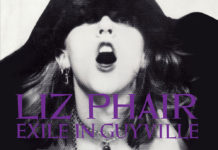Choosing the right music for your film isn’t a walk in the park. It’s almost like a treasure hunt, and sometimes you don’t even know where to start and what to look for.
In this article, we discuss some of the best ways to decide which music is best for your film. Make sure you do each one of them to make the choice easier for you.
Search Early
Many filmmakers often search for choices late in production. That’s not bad, but it won’t help you find the right score either.
It’s wise to search early because:
- The song or music needs to be in line with the film’s narrative
- You might want some edits, changes, or removals along the way
- It will be obvious the music is tacked on top of the film
It’s best to start searching for music options during production or at least before the editing starts.
Try https://www.orchestra8.com if you’re searching for high-quality jazz or neo-classical musical scores for your film.
“Listen” to Your Film
The perfect song or musical score shows itself when you “listen” to what your film is telling you.
It may sound difficult, but you have to pay attention. Listen to the film, and listen to the mood.
- What emotions does the film evoke?
- How’s the pacing?
- What colors do you associate with the narrative?
Certain genres, moods, instruments, attributes, or even artists will pop up in your mind after you pay close attention.
Have Multiple Choices
And don’t limit yourself to just one option.
Try searching for related genres, instruments, or artists even after you think you’ve found the best match. Give yourself more wiggle room and options.
You may find one song that does more justice to one part of the film than the other. Or you can find another artist that can contribute much more evocative music to a part of your film.
Learn from the Pros
Of course, you want to create your own film identity. You want the film and the music to be part of your signature.
However, it’s also not bad to learn from the more experienced filmmakers. We discuss directors Martin Scorsese, Quentin Tarantino, and Christopher Nolan.
Martin Scorsese
Martin Scorsese is popular for his in-depth character studies. A Scorsese character is often conflicted and struggling to keep sane. Think Goodfellas, The Irishman, Shutter Island, and Taxi Driver.
A Scorsese soundtrack is quite distinct; he loves crooners from the 50s mixed with 60s and 70s classic rock.
He has conjured unforgettable film moments that have this extra punch because of their excellent musical scores. Here’s how Martin Scorsese perfected the movie soundtrack.
Quentin Tarantino
Super stylish, super violent — this is how many would describe a Quentin Tarantino film.
His trademarks include shots of bare feet, trunk shots, tons of pop culture references in dialogues, and many others.
His soundtrack style is distinct in that he almost always uses semi-obscure 70s rock songs. He also uses pop music that elevates film scenes and makes them simply iconic.
He’s completely mastered the art of the badass soundtrack.
Christopher Nolan
From mind-bending timelines of an amnesiac’s memories (Memento) to bending reality in dreamscapes (Inception) to Bane bending Batman’s back (The Dark Knight Rises) to the literal bending of time and space (Interstellar), you sure have to admire Christopher Nolan’s filmmaking prowess one time or another.
Nolan prefers dramatic and booming musical scores, more often created by Hans Zimmer.
He works in collaboration with top caliber musical experts and provides a visceral, affecting experience through film and music.
Experiment, Feel It
If you already have a good idea of the music you want and the rules you have to follow, try and break them. Often, this experiment paves the way for unexpected, newer styles in filmmaking.
Then, see whether you get the “chills” while watching. If it’s good, you’ll be emotionally affected by the music and the film. If you don’t, your audience will probably feel the same.
Or Consider Silence
Some movies thrive even without music, or at least many parts of it in silence.
Think of No Country for Old Men and Dog Day Afternoon.
True, music adds impact to the scenes. But many scenes are better off with silence, especially if the scene already has everything going for it.
Are you searching for the perfect music for your film? We hope these tips help. Good luck!
For some royalty free jazz music on Youtube see this:






